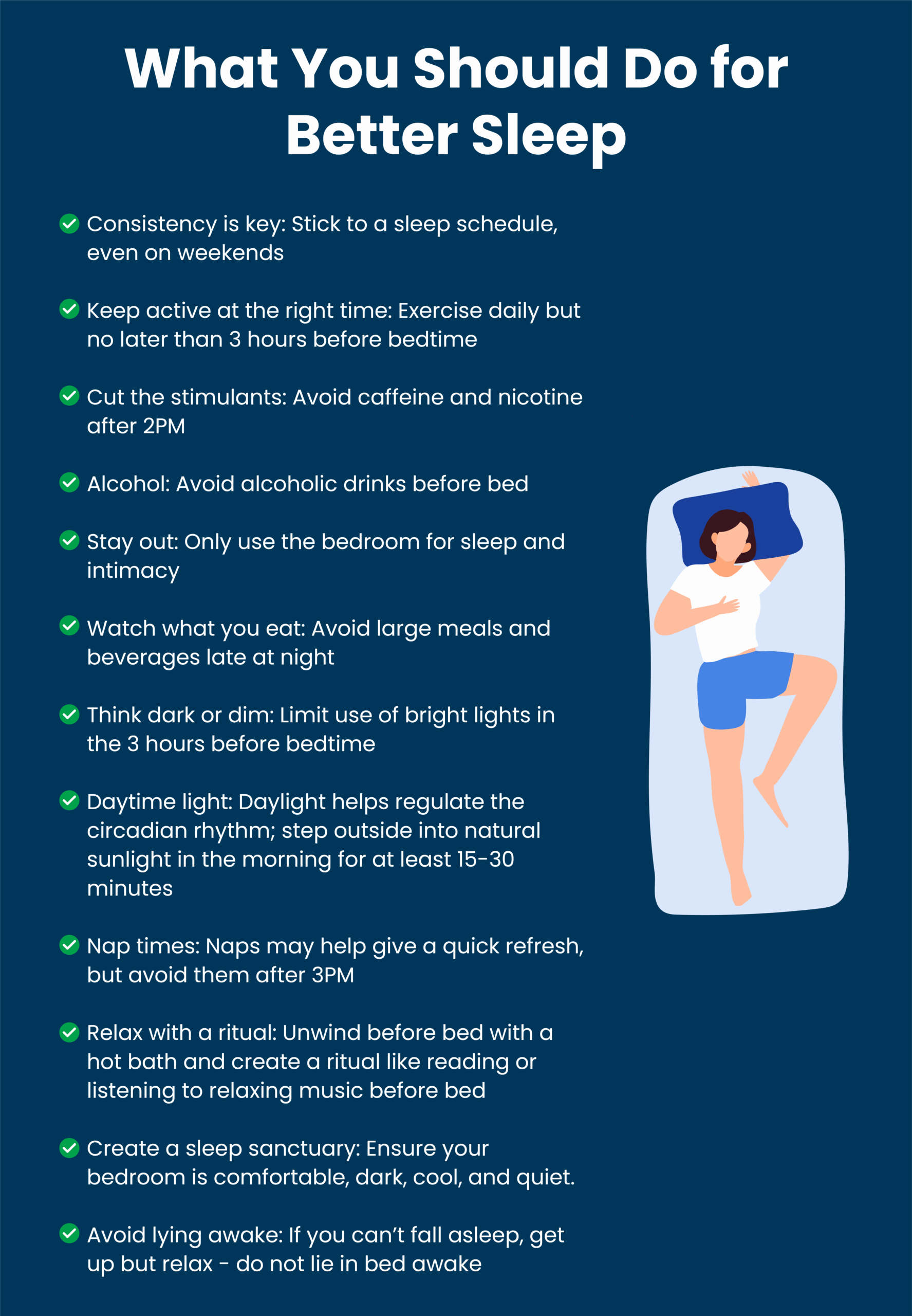
Blog
Good sleep is vital for health and happiness. Many struggle with sleep issues.
Nighttime rituals can help improve sleep naturally. They create a calming routine that tells your body it’s time to rest. These rituals involve simple, consistent actions. They can ease your mind, reduce stress, and prepare you for a restful night.
Think of them as a gentle way to guide your body and mind into relaxation. Whether it’s a warm bath, reading a book, or meditating, these rituals help signal the end of the day. They set the stage for better sleep, making a big difference in how you feel. Ready to discover peaceful nights? Let’s explore some easy and natural nighttime rituals to enhance your sleep.

Credit: www.amazon.com
The Importance Of Sleep
Sleep is a fundamental aspect of our well-being, yet many of us underestimate its importance. Have you ever considered how much your daily performance is tied to the quality of your sleep? You may find that your mood, energy levels, and even your health hinge on how well you rest at night. Establishing a nighttime ritual could be the key to enhancing this vital part of life.
Effects Of Sleep Deprivation
Neglecting sleep can lead to a host of problems. You might feel irritable or struggle to concentrate during the day. Chronic sleep deprivation can even impact your immune system, making you more susceptible to illnesses. Imagine trying to recall a simple fact, but your brain feels foggy; this is often a result of insufficient sleep.
It’s not just about feeling tired. Sleep deprivation can increase stress levels and affect your mental health. If you’ve ever felt anxious without a clear cause, poor sleep could be to blame. Your body needs time to repair and recharge, and that happens most effectively during deep sleep stages.
Benefits Of Quality Sleep
Quality sleep can transform your life. It boosts your mood and enhances your cognitive abilities. Picture waking up refreshed and ready to tackle your day with enthusiasm. That’s the power of a good night’s sleep.
Moreover, quality sleep aids in maintaining a healthy weight and can improve your heart health. Consider how your body feels after an uninterrupted night’s rest; it’s like hitting a reset button. Your skin appears healthier, and your energy levels soar.
Are you prioritizing your sleep enough? Integrating simple rituals into your nighttime routine can help you achieve the restful sleep you deserve. Maybe it’s a warm bath or reading a book before bed. These small changes can have a big impact.
What steps will you take to ensure you’re getting the quality sleep your body craves? Start with the basics and watch how your life improves.
Creating A Sleep-friendly Environment
Creating a sleep-friendly environment is essential for a restful night. Your bedroom should be a sanctuary for relaxation and comfort. A few changes can make a big difference in how well you sleep. Focus on your surroundings to enhance your nighttime rituals.
Optimal Bedroom Setup
Your bedroom should invite rest and tranquility. Start by choosing calming colors for your walls and bedding. Soft blues, greens, or neutral shades work well. Keep your bed comfortable with supportive pillows and a cozy mattress. Arrange furniture to promote ease and comfort. Make sure your bed is the focal point, positioned away from windows and doors. A tidy space helps clear your mind. Remove clutter and unnecessary items for a peaceful ambiance.
Managing Light And Noise
Light and noise can disrupt sleep. Aim for a dark room by using blackout curtains or blinds. This blocks outside light effectively. Consider a dim nightlight for safety without disturbing your rest. Quiet your surroundings by minimizing sound. Use earplugs or a white noise machine if needed. Soft music or nature sounds can also aid relaxation. Keep electronic devices away from your bed. The blue light can interfere with your sleep cycle. Reducing these distractions helps you fall asleep easier.
Pre-sleep Relaxation Techniques
Do you often find yourself tossing and turning at night, unable to drift off to sleep? Pre-sleep relaxation techniques might just be the answer you need. These practices can help calm your mind and prepare your body for a restful night. Imagine winding down in a way that gently guides you into sleep, allowing you to wake up refreshed and energized.
Breathing Exercises
Breathing exercises are a simple yet effective way to relax before bed. Try the 4-7-8 technique: inhale for 4 seconds, hold your breath for 7 seconds, and exhale slowly for 8 seconds. Feel the tension leave your body as you focus on your breath. You might be surprised how calming it can be, just like it was for me during a stressful week. I found myself sleeping better after just a few nights.
Guided Meditation
Guided meditation can transport you to a serene mental space, away from daily worries. Choose a calming voice or soothing music to lead you. Apps like Calm or Headspace offer a variety of options tailored for sleep. Imagine a gentle voice guiding you through a peaceful landscape as you let go of stress. How does it feel to let someone else guide your thoughts into tranquility? You might find your mind is quieter when you finally close your eyes.
Both techniques have their unique benefits. Breathing exercises are quick and can be done anywhere. Guided meditation provides a structured path to relaxation. Which one might you try tonight? Your journey to better sleep could start with just a few minutes of dedicated relaxation time.
Natural Sleep Aids
Struggling to drift off at night? Natural sleep aids can help. These remedies enhance relaxation and encourage restful sleep. They are perfect for those seeking a peaceful night without medication. Explore how herbal teas, supplements, and aromatherapy can support your nighttime routine.
Herbal Teas And Supplements
Herbal teas are calming and soothing. Chamomile tea is a popular choice for sleep. Its properties reduce stress and ease anxiety. Valerian root tea is another option. It acts as a mild sedative. This tea promotes deep sleep. Supplements like magnesium can improve sleep quality. Magnesium relaxes muscles and aids in sleep. Melatonin supplements can adjust sleep cycles. They are beneficial for those with irregular sleep patterns.
Aromatherapy For Sleep
Aromatherapy uses scents to relax the mind. Lavender is well-known for its calming effects. Diffuse lavender oil before bedtime. It creates a peaceful environment. Another option is chamomile oil. It helps calm nerves and promotes relaxation. Cedarwood oil can also be effective. Its earthy scent grounds the senses. Using a diffuser or pillow spray makes aromatherapy easy. Scented candles can enhance the atmosphere. Choose natural options for best results.
Nutrition And Sleep
Good nutrition plays a crucial role in achieving restful sleep. The foods you eat can significantly impact your sleep quality. By choosing the right foods, you can enhance your nighttime rest. On the other hand, certain foods and drinks can disrupt your sleep. Knowing what to eat and what to avoid is key.
Foods To Enhance Sleep
Certain foods contain nutrients that promote better sleep. For instance, bananas are rich in magnesium and potassium. These minerals help relax muscles and calm the body. Almonds are another great choice. They contain melatonin, a hormone that regulates sleep. Oats are also beneficial. They are a natural source of melatonin and encourage drowsiness. Fatty fish like salmon can improve sleep, too. They have omega-3 fatty acids and vitamin D. These nutrients increase serotonin, a sleep-enhancing chemical.
Avoiding Sleep Disruptors
Caffeine is a well-known sleep disruptor. It can stay in your system for hours. Avoid coffee or energy drinks in the afternoon. Spicy foods can also interfere with sleep. They may cause heartburn or indigestion. It’s best to consume them earlier in the day. High-sugar foods can spike energy levels. This makes it harder to fall asleep. Alcohol might make you sleepy, but it disrupts sleep patterns. It can lead to a restless night. Eating large meals close to bedtime should be avoided. They can cause discomfort and keep you awake.

Credit: www.amazon.com
Consistent Sleep Schedule
Creating a consistent sleep schedule is key to enhancing nighttime rituals for better sleep. Dim lights and soothing music help ease the mind. Avoid screens before bed to improve natural sleep patterns.
A consistent sleep schedule might be the missing piece in your quest for better sleep. Ever wondered why kids have set bedtimes? It’s because regular sleep patterns are crucial for their growth and development. But this concept isn’t just for children; it’s equally vital for adults. Sticking to a regular sleep schedule can significantly enhance your sleep quality, making you feel more refreshed and energized every morning. Let’s dive into how you can establish a consistent sleep routine that respects your body’s natural rhythms.
Setting A Bedtime Routine
Creating a bedtime routine is like signaling to your body that it’s time to wind down. Begin by choosing a set time to go to bed each night. Consistency is key, even on weekends when you might be tempted to stay up late. Consider activities that soothe you, like reading a few pages of a book or listening to calming music. You might find that these simple rituals make falling asleep easier. Think about what signals your body to relax. Is it dimming the lights or sipping herbal tea? These small actions can prepare your mind for rest, setting the stage for a peaceful night.
The Role Of Circadian Rhythms
Your circadian rhythms are your internal clock, guiding your sleep-wake cycle. They thrive on consistency. When you keep a regular sleep schedule, you align with these natural rhythms, making it easier to fall asleep and wake up. Have you noticed how sunlight wakes you up naturally? That’s your circadian rhythm at work, nudging you to wakefulness. Try syncing your sleep schedule with daylight hours. Going to bed when it’s dark and waking with the sun can enhance your sleep quality. By respecting these rhythms, you help your body perform optimally during the day. Do you often find yourself groggy in the morning? Consider how irregular sleep might be disrupting your natural cycles. A consistent schedule is not just about the time you go to bed; it’s about respecting your body’s natural inclinations. Wouldn’t it be wonderful to wake up feeling truly rested? Embrace these rhythms, and let them guide you to better sleep naturally.
Digital Detox Before Bedtime
In the hustle and bustle of modern life, our evenings are often filled with screens. From scrolling through social media to binge-watching shows, the glow of digital devices dominates our nights. But have you ever wondered how this impacts your sleep? Embracing a digital detox before bedtime can be your secret weapon for improving sleep naturally. Let’s dive into how you can make this simple change in your routine.
Limiting Screen Time
Reducing screen time in the evening is a powerful way to prepare your mind for rest. The blue light emitted by devices can trick your brain into thinking it’s still daytime, disrupting your natural sleep cycle. Instead of reaching for your phone or tablet, set a specific time to unplug.
Start small. Try turning off screens an hour before you plan to sleep. You might find that this transition helps ease your mind and makes your bed a more inviting place. Imagine how refreshing it would feel to wake up without the weight of digital fatigue.
Could you swap your nightly scroll for a calming activity? Consider how this small change could transform your sleep quality.
Calming Activities
Once you limit screen time, fill that space with calming activities. Reading a book, practicing gentle yoga, or meditating can be soothing alternatives. These activities help signal to your brain that it’s time to wind down.
Try journaling as a way to organize your thoughts. Writing can be therapeutic, and it’s a great way to reflect on your day. You might find that putting pen to paper helps clear your mind for restful sleep.
How do you feel about listening to calming music or nature sounds? This can be a gentle nudge for your body to relax, inviting sleep more naturally than the buzz of digital alerts.
Have you considered how these simple rituals might affect your energy levels the next day? A digital detox before bed might be the key to waking up refreshed and ready to tackle whatever comes your way.
Mindfulness And Sleep
Create a calming bedtime routine to enhance sleep naturally. Enjoy a warm bath, sip herbal tea, or practice deep breathing. These mindful rituals signal your body it’s time to relax, promoting restful sleep.
Achieving restful sleep often feels like an elusive goal, especially in today’s fast-paced world. However, integrating mindfulness into your nighttime ritual can be a game-changer. By focusing on the present moment, you can calm your mind and prepare your body for a peaceful slumber. ###
Journaling For Relaxation
Have you ever tried putting pen to paper before bed? Journaling can be a powerful tool to unload your thoughts and worries. Writing down your thoughts helps you clear your mind, making it easier to relax. Consider dedicating just five minutes each night to jot down your feelings or list what you’re grateful for. This simple practice can shift your mindset from stress to tranquility. What worries are you holding onto that you could release through writing? ###
Yoga Poses For Better Sleep
Did you know that certain yoga poses can enhance your sleep quality? Gentle stretching can relax your muscles and ease tension. Try incorporating a few simple poses into your bedtime routine. Consider the child’s pose or legs-up-the-wall pose. These positions promote relaxation and signal to your body that it’s time to wind down. Have you noticed how your body feels after a few minutes of gentle yoga? Mindfulness practices like journaling and yoga can transform your nighttime routine. By integrating these activities, you’re not just preparing for better sleep—you’re nurturing your overall well-being. What small change can you make tonight to improve your sleep naturally?

Credit: www.sleepscore.com
Frequently Asked Questions
How Can I Sleep Better At Night Naturally?
Establish a consistent sleep schedule by going to bed and waking up at the same time daily. Avoid caffeine and electronic screens before bedtime. Create a relaxing bedtime routine, such as reading or meditating. Ensure your bedroom is cool, dark, and quiet for optimal sleep.
Engage in regular physical activity.
What Is The 10 3 2 1 Rule For Sleep?
The 10 3 2 1 rule helps improve sleep quality. Avoid caffeine 10 hours before bed, stop eating 3 hours before, finish work 2 hours before, and turn off screens 1 hour prior. This routine promotes better sleep hygiene and relaxation.
What Is A Good Bedtime Ritual?
A good bedtime ritual includes reading a book, practicing deep breathing, and avoiding screens. Dim the lights to create a calming environment. Consistent sleep schedules enhance relaxation, preparing your body for restful sleep. Enjoy a warm drink like herbal tea to soothe the mind and promote tranquility.
What Is The Best Remedy For Good Night Sleep?
Create a relaxing bedtime routine with activities like reading or meditation. Maintain a consistent sleep schedule. Limit caffeine and screen time before bed. Ensure your bedroom is cool, dark, and quiet. Consider using a white noise machine or essential oils like lavender for better relaxation.
Conclusion
Creating a nighttime routine can greatly improve your sleep quality. Simple practices like dimming lights and avoiding screens help. Try deep breathing or meditation to calm your mind. Herbal teas can promote relaxation. Reading a book can soothe you into sleep.
Consistent bedtime signals your body to wind down. Experiment with these rituals to find what works best for you. Better sleep leads to better health and mood. Prioritize these habits for restful nights. Feel refreshed and ready for each new day.
Related posts
How Fast Does CBD Cream 5000mg Work on Sore Muscles?
Menthol and CBD: A Dynamic Duo for Pain Relief
Delta-8 vs Delta-9 THC: Which One Is Right for You?
CBD Cream 5000mg: Powerful Relief for Pain, Muscles & Joints
CBD for Arthritis Pain: What You Should Know
CBD Creams: Made with Hemp Oil for Pain Relief & Joint Support
Understanding Oral CBD vs Topical CBD: Which Works Best for You?
How CBD Cream Supports Your Body’s Natural Balance
CBD Cream for Arthritis Joint Pain: A Natural Way to Find Relief
Is CBD Cream the Secret to Glowing, Healthy Skin?
How CBD Cream Works on Your Skin
CBD Cream Costs: Finding the Perfect Balance Between Price and Quality
Table Of Contents
Recent Posts
Products
-
 CBD Cream 5000mg – Extra Strength Pain Relief Topical Rated 4.83 out of 5$33.93 – $49.99Price range: $33.93 through $49.99 — or subscribe and save up to 25%
CBD Cream 5000mg – Extra Strength Pain Relief Topical Rated 4.83 out of 5$33.93 – $49.99Price range: $33.93 through $49.99 — or subscribe and save up to 25% -
 CBD Sleep Gummies 2500mg With Melatonin - 100 count Rated 5.00 out of 5
CBD Sleep Gummies 2500mg With Melatonin - 100 count Rated 5.00 out of 5$69.99Original price was: $69.99.$34.99Current price is: $34.99. -
 3000mg CBD Oil Rated 5.00 out of 5$29.90
3000mg CBD Oil Rated 5.00 out of 5$29.90 -
 CBD Gummies 500 mg - 21 Gummies Rated 5.00 out of 5$19.90 – $23.00Price range: $19.90 through $23.00
CBD Gummies 500 mg - 21 Gummies Rated 5.00 out of 5$19.90 – $23.00Price range: $19.90 through $23.00


















